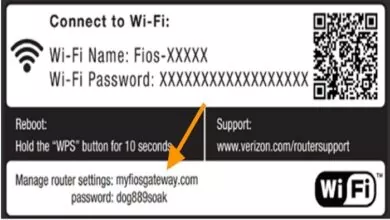
A first-time buyer mortgage is a financial product specifically designed to help individuals purchase their first home. These mortgages often offer unique features and benefits tailored to the needs of first-time buyers, such as lower down payment requirements, flexible eligibility criteria, and government-backed assistance programs. This comprehensive guide will cover everything you need to know about first-time buyer mortgages, including eligibility requirements, types of mortgages available, down payment options, potential benefits and drawbacks, and tips for navigating the homebuying process as a first-time buyer.
Eligibility Requirements
To qualify for a first-time buyer mortgage, individuals typically need to meet certain eligibility criteria established by lenders and government agencies. These criteria can include factors such as credit score, income stability, employment history, debt-to-income ratio, and citizenship or residency status. Additionally, first-time buyers can be required to complete a homebuyer education course or counseling session to enhance their understanding of the home-buying process and financial responsibilities. By meeting the eligibility requirements and demonstrating financial readiness, first-time buyers can increase their chances of securing a mortgage and achieving their homeownership goals.
Types of Mortgages Available
There are many varieties of first-time buyer mortgages, each with special benefits, features, and things to think about. Mortgages of the fixed-rate kind, adjustable-rate mortgages (ARMs), USDA, VA, FHA, and loan types are common among first-time homebuyers. While adjustable-rate mortgages (ARMs) provide lower introductory rates that change frequently depending on market circumstances, fixed-rate mortgages give consistent monthly payments. Government-backed programs like FHA, VA, and USDA loans provide advantages including low down payment requirements and broad qualifying criteria, meeting the demands of first-time purchasers in a range of financial circumstances.
Down Payment Options
The down payment, or the first advance payment paid toward the cost of the house, is one of the most important factors for first-time buyers. First-time buyer mortgages often provide more flexible down payment alternatives than standard mortgages, which might need down payments of 20% or more. Some programs make homeownership more accessible to those with minimal savings by allowing down payments as low as 3% to 5% of the home’s buying price. To further lessen the financial strain of buying a house, first-time buyers may also be eligible for grants and down payment assistance programs, which may help them pay for all or part of their closing expenses and down payment.
Benefits and Drawbacks
First-time buyer mortgages offer several benefits, including lower down payment requirements, competitive interest rates, and government-backed assistance programs. These mortgages can help individuals overcome financial barriers to homeownership and achieve their housing goals sooner. However, there are also potential drawbacks to consider, such as mortgage insurance premiums, stricter eligibility criteria, and limitations on property types and purchase prices. Additionally, first-time buyers can face competition from more experienced buyers and investors in competitive real estate markets, requiring careful planning and preparation to secure a suitable home within their budget.
Navigating the Homebuying Process
Navigating the homebuying process as a first-time buyer can be daunting, but with the right guidance and preparation, it can also be an exciting and rewarding experience. Start by assessing your financial situation, including your income, expenses, credit score, and savings, to determine how much you can afford to borrow and spend on a home. Research different mortgage options and lenders to find the best fit for your needs, comparing interest rates, fees, and terms. Once you’ve been pre-approved for a mortgage, work with a trusted real estate agent to find a home that meets your criteria and negotiate an offer. Finally, complete the mortgage application process, secure financing, and close on your new home with confidence.
Conclusion
In conclusion, a first-time buyer mortgage is a valuable financial tool that can help individuals achieve the dream of homeownership. By understanding the eligibility requirements, types of mortgages available, down payment options, benefits and drawbacks, and tips for navigating the home buying process, first-time buyers can make informed decisions and embark on their homeownership journey with confidence. With careful planning, preparation, and support, first-time buyers can successfully navigate the complexities of the real estate market and find a home that meets their needs and aspirations.




